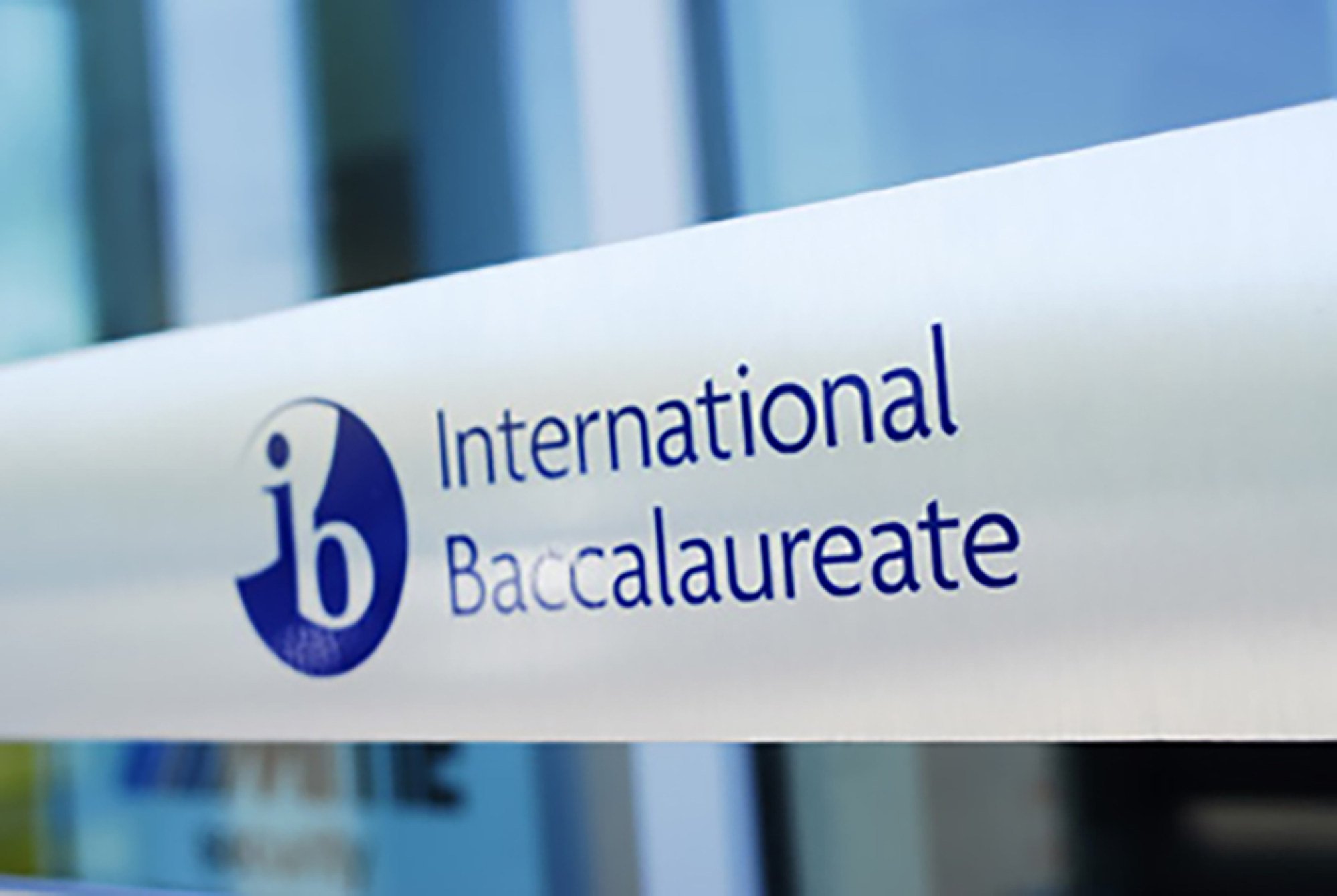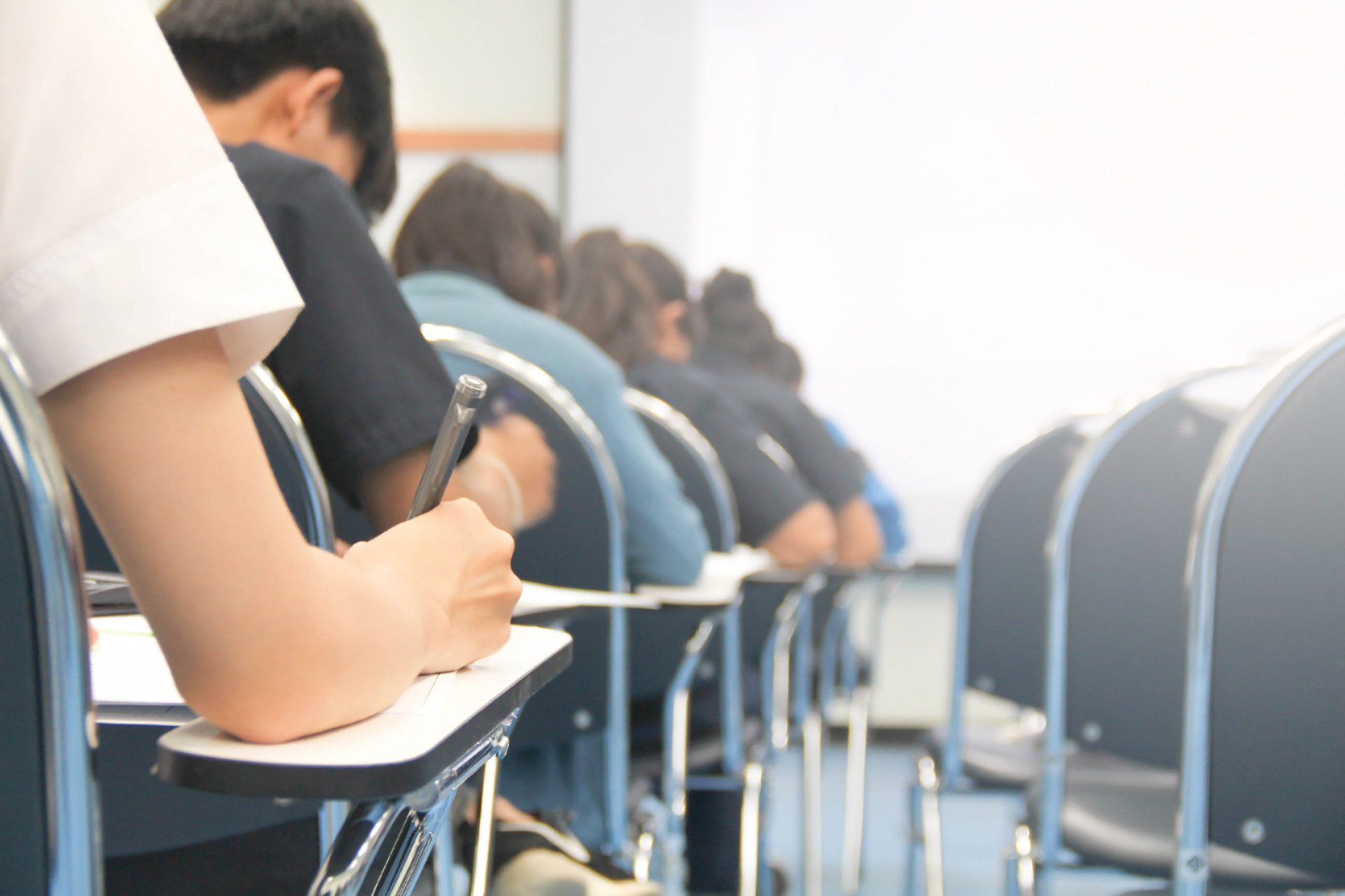
Explainer | ‘Time-zone cheating’ has sparked outcry among pupils sitting IB exams in Hong Kong and overseas. So what’s the solution?
- International Baccalaureate Organization launches inquiry after exams already taken in some time zones, including Hong Kong, appeared online
- Pupils in Europe claim they read questions and answers from links shared on social media site Telegram before they took exams, but after Asia had taken them
Controversy over leaked International Baccalaureate (IB) exam papers erupted this week on online forums and social media platforms, sparking an outcry from pupils, including those from Hong Kong, that some might have seen the questions and answers before they sat the tests.
The International Baccalaureate Organization said the leaks were related to “time-zone cheating” and that a probe into the incident would be launched.
Here the Post explains what happened with this year’s international exams, taken by an average of 170,000 pupils every year.
1. What happened to this year’s IB exam?
Some pupils in Europe have claimed that they read leaked questions and answers provided on a Telegram channel before taking their exams, while others in Asia have said the leak happened after they sat the test.
The exams started on April 24 and run until May 17. The leaks triggered widespread outrage and calls from pupils, including Hongkongers, for tests to be cancelled or taken again.
The Post earlier found leaked questions and answers for mathematics papers from links circulated on the online forum Reddit.
Screenshots were also found of a Telegram channel that contained links to questions for business management, global politics, mathematics, physics, computer science, biology and chemistry.
A downloading site showed that two documents – “Paper 2 Math AA HL” had been downloaded 18,000 times and “Maths AA HL Questions” had been downloaded 19,000 times by Monday afternoon.
There were also 8,000 downloads for “Business Management Paper 1” and “Global Politics HL Paper 2” had been downloaded 2,000 times.
The four exams were held between April 26 and May 2.

2. What was the response from the examining body?
The organisation said it had identified instances of time-zone cheating, where pupils who had finished their exams had shared their recollection of questions to help others in regions still to take the tests, which is prohibited under the IB’s academic integrity policy.
The Switzerland-based organisation said it was notified last week that “a small number” of pupils had cheated by posting exam content on social media. But it insisted there was no evidence to suggest such behaviour was widespread.
It said pupils found to be involved in misconduct will receive no marks or may not be awarded IB qualifications.
The organisation added that an investigation would be launched into the leaks. It said the sources had been identified and appropriate steps were being taken to hold those responsible to account.
It added officials had been identifying and removing exam content posted online and would “carefully review individual exam responses for cases of misconduct and otherwise mark papers as usual, to ensure students who acted with integrity are not penalised”.
3. Have there been similar incidents before?
The entire May 2013 administration of SAT and SAT Subject tests in South Korea was cancelled because of leaked questions.
It was also reported that the Educational Testing Service, which administers the SAT, had confirmed that some pupils in Asia had cheated in 2014.
Cancellations of SAT in China and Macau were also reported in 2016 because some pupils had been exposed to test materials before they sat the exams.
The method used was similar to time-zone cheating as The Washington Post quoted a source that said someone from the United States had obtained the recently administered SAT exams and forwarded them to the databases of overseas “test prep” companies.
“Hired guns” later took the tests in Asia in places where the time zones were several hours ahead of China and memorised the first few questions.
They called or texted the information to their superiors during “bathroom breaks”.
Companies would check their databases to determine whether the same paper would be used in tests to be administered in China later the same day.
The correct answers were sent to clients by emailing the file to their mobile phones or placing it on programmable calculators, which were allowed to be used during the tests.
The incidents inspired the Thai movie Bad Genius, where the characters make money by helping fellow pupils to cheat in exams. One of the tactics involved taking advantage of time zone differences between Australia and Thailand.

4. How can similar leaks be prevented?
David Webb, a shareholder activist of Hong Kong-listed companies, who writes reports examining corporate governance, said the leaks reflected the “bad governance” at the examining organisation.
He highlighted exam body Cambridge International Education, which runs International General Certificate of Secondary Education exams and works across six time zones, compared with IB’s three.
The Cambridge group has a precaution called “Key Time”, where each exam centre is given a time based on its country and location to prevent time-zone cheating.
Over the period, pupils must be either taking an exam or under supervision and without access to phones or the internet.
“[IB] must have been aware of this problem for years,” Webb said. “They can easily see what other exam boards are doing.
“I suspect they just haven’t got a grip on it, or haven’t been as aware of it until now.”
Hans Yeung Wing-yu, a former history subject assessment development manager who worked at the Hong Kong Examinations and Assessment Authority for 15 years, agreed there was room for improvement in the security for IB exams.
But both men admitted that it could be difficult for IB to detect cheating based on pupils’ answers.
The IB said on Monday that it was striving to stay ahead of technological advancements that could impact learning, as well as cultivating a culture of academic integrity among students that emphasised the importance of honesty and the negative consequences of cheating.
“We work towards promoting open dialogue about academic integrity, and encouraging students to take pride in their own achievements rather than resort to dishonest conduct,” a representative said.
“In this case, students who are responsible will be held accountable, and students who did not engage in cheating will not be penalised.”
Edward Law Shun-yuen, co-founder and director of tutorial centre HKExcel, said IB had been offering two sets of papers for each subject to prevent candidates in different areas from leaking exams.
“The best solution is for the assessment authority to prepare more sets of papers, 10 for example, for different areas, but of course it involves a very high cost and manpower,” he said.
He added that the saga was probably due to a rise in the use of various social media platforms. Some users might have leaked exam questions in a bid to boost their popularity and the number of followers.
Law noted IB should also consider setting up supervisory committees to monitor social media accounts to prevent students from sharing the content of their exam papers.

